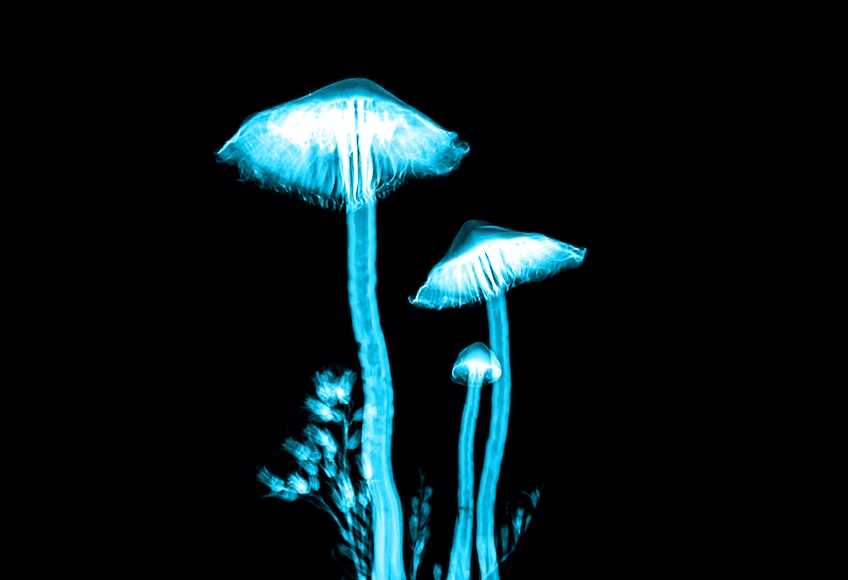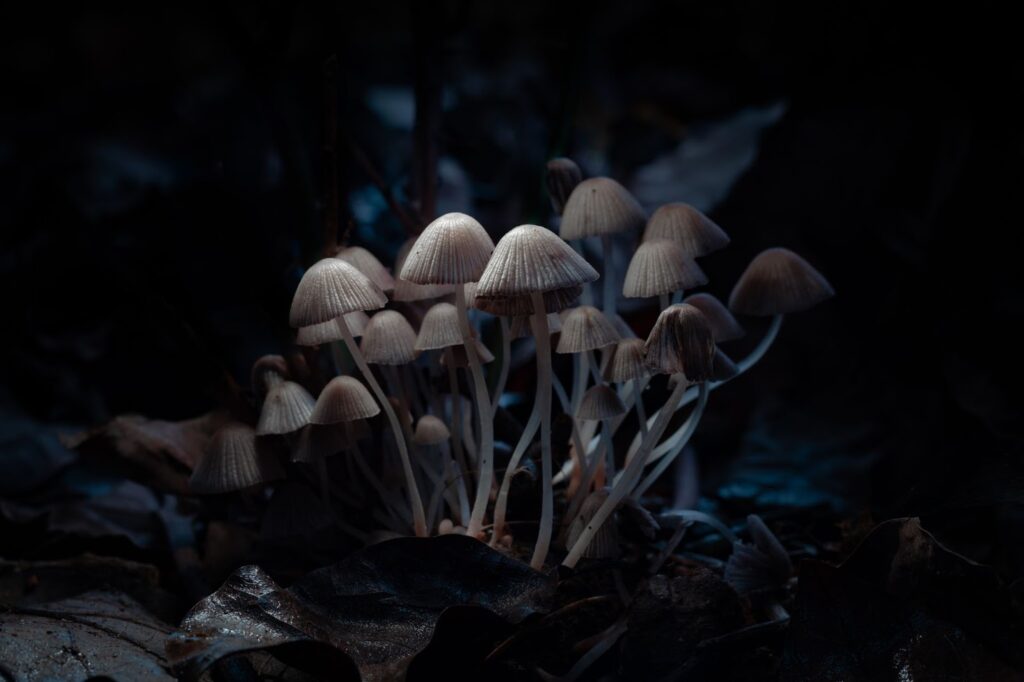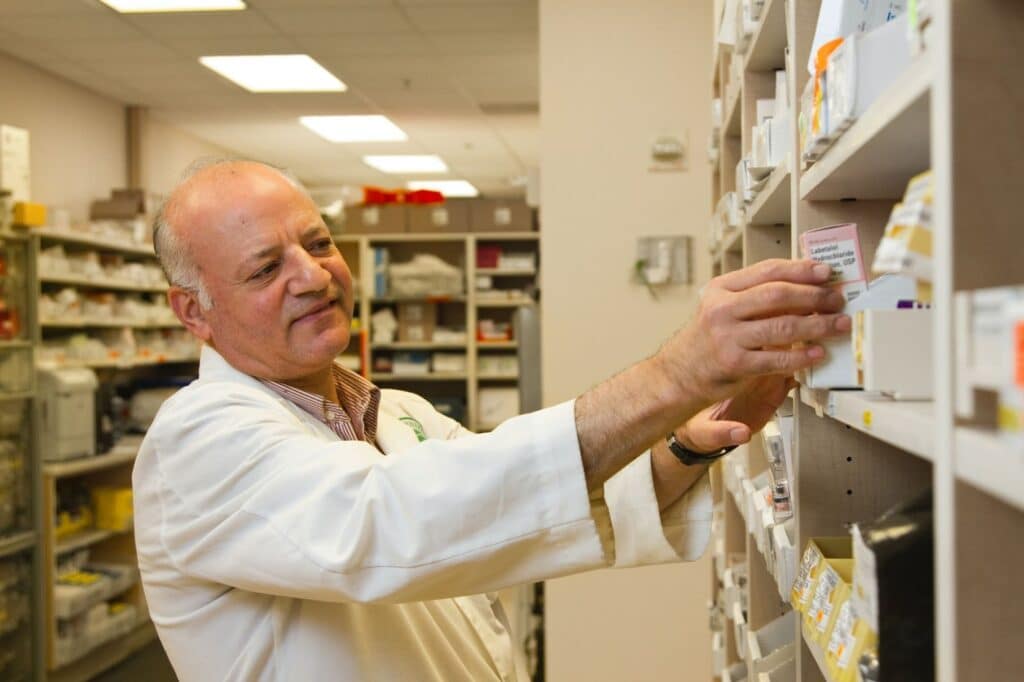From healing ceremonies in Mesoamerica to the veladas of Mazatec Indians, psychedelic shrooms have always been crucial in the realm of indigenous healing. Ancient people believed they held powers that could cure diseases and reveal the factors causing illnesses.
Ready to discover more about these ancient practices? Let’s take a deep dive into the cultural healing rituals involving mushrooms and how modern research reveals their treatment possibilities.
History of Magic Mushrooms as a Sacred Medicine
To begin the journey through the history of mushrooms as medicine, we need to go back to 16th-century Mexico. Some of the earliest written codices speak of the teonanácatl, which translates to “flesh of the gods” in Spanish.
These ancient texts spoke of wild mushrooms that people ate raw at ceremonies in honor of the gods. It’s reported that those who consumed the teonanácatl had visions, and some even received healing powers.
Next, we travel to Huautla de Jiménez in northern Oaxaca in the 20th century, where the Mazatec Indians performed mushroom veladas.
These indigenous healing ceremonies involved a curandero or curandera (healer) consuming the shrooms and opening a passage to their spirits.
They believed the mushrooms could reveal the patients’ illnesses and instruct the healer on how to cure them.
After the Spanish conquest, documentation on mushrooms disappeared, and there was a long silence until 1955. Scholar R. Gordon Wasson met the famous Mazatec curandera María Sabina, and she allowed him to participate in one of their veladas.
He was awestruck by the indigenous healing ritual and said, “The mushroom holds the key to a mystical union with God”.

In the years from 1950 to 1960, psychedelic mushrooms made their mark in western counterculture. In 1960, renowned psychologist Timothy Leary launched the Harvard Psilocybin Project, which looked at the effects it has on personality.
Leary discovered that the research participants were reporting countless religious and spiritual experiences. After many discoveries, scholars changed the term from psychedelic mushrooms to entheogen, which means “that which engenders God within”.
They wanted to study and emphasize the spiritual and medicinal benefits outside of recreational use.
Journey Through the Psyche With Psilocybin Shrooms

How did these ancient rituals help people and continue to do so today? From anecdotal evidence, most people report an awakening of consciousness. They say they learned something about their past or themselves, changing their outlook on life.
Many psychological theorists, including Sigmund Freud, the founder of psychoanalysis, believed the root of all mental disorders was in the unconscious mind.
Psychologists who apply Freudian theory could take years to unpack deep-seated traumas. Patients of psilocybin-assisted therapy claim it takes them through this process and clears unconscious blockages.
Perhaps the indigenous healing rituals were a means for people to self-heal by re-discovering trauma and working through it. When compared to western therapy, these ancient practices had similar goals:
- Discover past traumas and experiences that may have caused the condition.
- Unveil any defense mechanisms the individual uses.
- Enable the person with knowledge and motivation to let go of the past, destructive behaviors, or poor habits.
- Encourage them to release any pent-up emotions, including anger, grief, and regret.
- Instill the desire to want more out of life or fulfill their purpose.
- Better understand their emotions and how to react to them.
- Gain a new perspective on the meaning of life.
Paradigm Shift From Modern Medicine to Ancient Healing Practices
Magic mushrooms are becoming increasingly popular both as a recreational and medicinal consumable. People are searching for alternatives to western pharma and natural solutions to common ailments.
Many mental health experts suspect these shrooms are the next big thing in the psychology field. In fact, in 2020, Oregon legalized the therapeutic use of psilocybin, and it’s suspected many states will follow suit.
So, why are people so interested in trying shrooms? Most of those who test it describe it as a life-changing experience. Some even claim it cured their depression and anxiety.
However, some therapists point out that it’s not a suitable treatment for all ailments. Psychedelics may trigger certain conditions or worsen them.
They advise those with a genetic history of schizophrenia or other psychotic disorders to steer clear of shrooms. People who are currently on antidepressants should also avoid them, as it could have a negative interaction.
The key difference between modern medicine and psychedelic shroom treatments is that mushrooms work below the surface level. Most people report an experience or a story that teaches them about who they are and what their purpose is.
Potential Benefits of Integrating Indigenous Healing Practices Into Modern Medicine

Multiple FDA-approved longitudinal studies have highlighted the potential medical value of shroom treatments. Psychedelic mushroom-assisted psychotherapy has shown promise in treating anxiety symptoms, certain addictions, and depression.
Providing this alternative treatment could be beneficial for several patients. Those who choose not to take antidepressants can opt for psilocybin-assisted psychotherapy.
Recent studies reveal that even one or two sessions of psilocybin-based therapies may reduce symptoms of depression for up to a year. This may lower the need for long-term therapy, providing a more affordable option for those in financial constraints.
Introducing non-western medicines into the realm of pharma is grounded in reciprocity and inclusion. It promotes diversity in the field of medicine and may provide better treatment for people of certain cultural and religious backgrounds.
Head over to our Fungushead blog for other interesting pieces on the world of magic mushrooms.
All of the content and images on our site are for informational reference only. The cultivation of psilocybin mushrooms is federally illegal in the United States. We do not promote the cultivation of psilocybin “magic” mushrooms under any circumstances. Do not contact us asking for advice related to this subject. Any products found on this site are for microscopy and taxonomy purposes only. None of the psilocybin mushroom spores we offer are for consumption or cultivation. We do not sell any products containing psilocybin.

